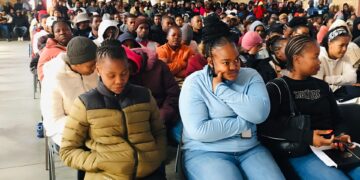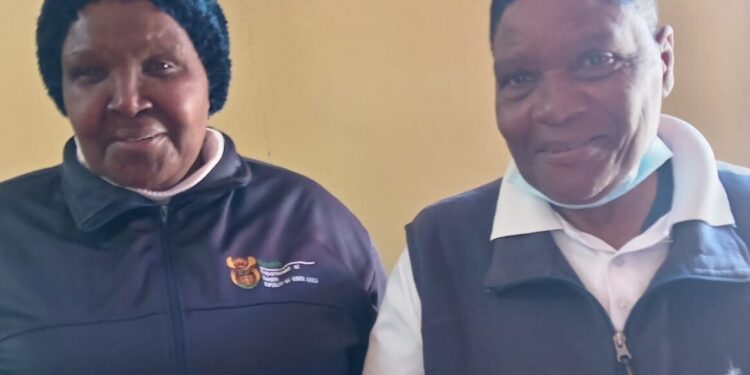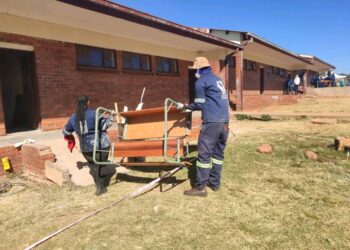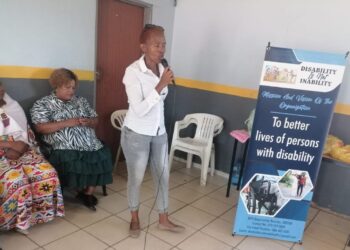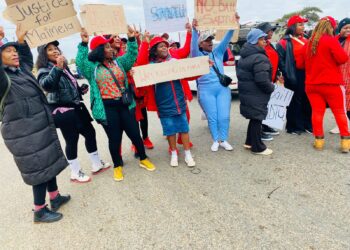Phola– Two women walk the dusty streets of Phola with purpose, courage, and a love deeper than duty. Betty Masilela (67) and her colleague Phumzile Sindane (60) are dynamic community healthcare workers changing lives with two home visits at a time.
“We do this out of love. We don’t wait for a salary to move us,” says Sindane, her voice full of fire and her eyes filled with compassion. “We clean, feed, and counsel. Not because we have to, but because we care,” adds Masilela.
Together, they serve around 300 patients facing daily challenges that would break even the strongest. “Sometimes we find patients lying in dirty blankets, with no food, no caregivers, and no one to help them. We donate bread and drink-o-pop, then clean from changing diapers to washing bedding,” says Masilela.
Sindane’s journey began in 2018 when she was first employed, and two years later, in 2020, Masilela joined her in serving the community of ward 30 in Phola.
Emergencies do not clock out and neither do they.
Despite the Department of Health providing supplies like gloves, sanitizers, masks and aprons, these are often not enough . “We sometimes pay for transport out of our own pockets just to make sure a patient gets help,” says Sindane.
Many of their patients struggle with denial or cling to traditional practices, refusing modern medication. But instead of shaming them, these heroines build bridges. “We tell them there’s nothing wrong with using both church water and traditional medicine. But if you’re on chronic treatment, don’t skip it. Take both, just separate the time,” Betty advises.
Sometimes they even request pastors or traditional healers to join home visits. “Saving a life is more important than proving a point,” adds Sindane.
One of their proudest moments was securing food donations for an elderly patient. “Another time, we organised a funeral for a family with no burial society. We knocked on doors until they were laid to rest with dignity.”
While the job is deeply fulfilling, there are always difficult cases . They speak of five orphaned siblings, the eldest, a 20-year-old living with HIV, surviving on a R560 SASSA grant and refusing treatment. “This is why our job must also be spiritual, emotional, and psychological,” Betty insists.
“When a pregnant mother does not take HIV treatment or any antenatal treatment, the risk of transmitting the virus to her baby increases dramatically. As the child grows , they may face a lifetime of antiretroviral therapy, frequent clinic visits, health challenges, and the emotional burden of living with a condition they never chose,” explains Masilela.
This reality can lead to deep anger and confusion, especially during adolescence, when they begin to understand their status. Some children may direct their anger toward their parents, feeling betrayed or neglected, while others struggle with self-blame or isolation.
Botton Villane, their leader, affirms this with deep sincerity: “I personally make sure our CHWs receive counselling and mental health support. Door-to-door work is traumatic.”
He emphasises that patient confidentiality is a top priority.
“Let us work with love, not just for money,” pleads Sindane. “We ask South Africans: if you have a condition, take your treatment daily. When you feel better, don’t default, that’s when the danger comes.”
In a world often driven by profit and pride, Masilela and Sindane remind us of what true service looks like: waking up not for applause, but for people. They are the backbone of township healthcare, the protectors of the forgotten, and the beating heart of Phola.
“We don’t get rich doing this. But every life saved is worth more than gold,” says Sindane.










